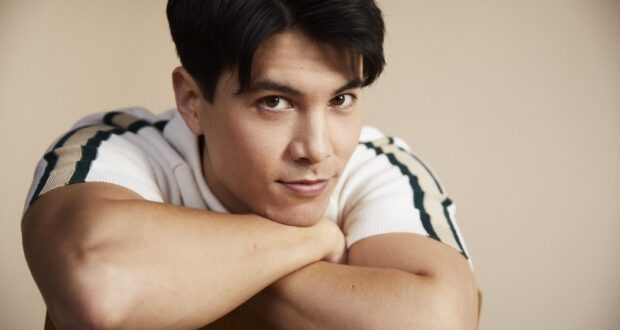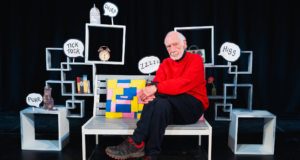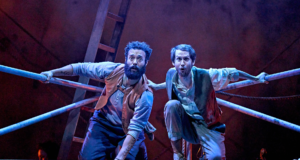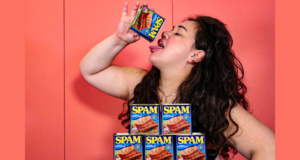James Phoon on making his National Theatre debut
We all know of the Brontë sisters, but maybe not as many of us know there was also a brother, Branwell. But now’s your opportunity to find out more about him, via James Phoon, who will be playing him at the National Theatre‘s Underdog: The Other Other Brontë. We caught up with James to to chat about how the show’s shaping up and his work on stage and screen.
What can you tell us about Underdog: The Other Other Brontë?
It’s a contemporary retelling of the Brontë sisters’ own story of getting their work published in the mid 19th century. It’s told through Charlotte Brontë’s point of view, breaking the fourth wall and directly engaging the audience in her memories.
Can you tell us a little about your character Branwell Brontë, the only son in the Brontë family?
Branwell is someone who struggles to navigate the world successfully. He is incredibly passionate, and desperate to achieve greatness. Unfortunately, the rest of the world doesn’t view him or his work as he does. Instead of figuring out how to overcome those things, he finds himself tilting more and more in the wrong direction, and becomes a deeply unpleasant person to be around. I think there’s real humanity to the comedy and outrageousness of the character – it’s all informed by his pain.
Now that Underdog has been playing for a couple of weeks, has anything surprised you in the audience’s reactions?
The audiences have been very responsive, which is the dream. There’s a lot of comedy in the show, and we had a fairly long rehearsal process of around six weeks, so by the end of that, you can start to lose sight of if the comedic elements you’re bringing are working. So the first preview where we had an external, fresh audience response was invaluable – and hearing how much they laughed was certainly a relief! But it was also great to see how they reacted to the more emotional and hard-hitting parts. I hear a few sniffles from the audience, which shows how much this story really resonates with people.
Making your National Theatre debut, a place with such an incredible history, must be quite the experience. How did it feel to step onto that stage for the first time?
It felt very special. So many incredible performers have played at the National, and to now be a small part of its history is a real honour. There’s always that flurry of excited nerves when you open a show, especially on this stage, but the cast and whole team have been so incredibly supportive and encouraging of each other that ultimately we’re all just excited to get out each night and tell this wonderful story together.
You are also starring in Wreck currently on BBC Three and you join Netflix’s Bridgerton for season 3 soon. Can you give us an insight into some of the differences between working on stage and on screen?
They are hugely different processes. When making a theatre show, you work and rework the scenes as a team, and throughout that process you are finding the bits that you want to keep and the bits that you want to re-explore. You’re heading towards the version of the story that is right for your production, and aim to tell a version of that same story every night for many individual audiences. However, when filming, a lot of that exploration work is done by yourself before getting to set. And then during the filming process, you offer up ideas and play with your scene partners and the team in the moment and get versions of that story recorded. There are so many ways to play a scene, and often none are necessarily right or wrong, but depending on the overall story being created, one version will become finalised in the edit. So it’s collaborative in a very different way.
What do you enjoy most about acting on stage compared to acting on screen, and vice versa?
On stage, I love that you are sharing a story start to finish right there and then with a room full of strangers. There’s an immediacy to do it. As soon as you’ve said the words, they’re gone, and you’re moving forward. However you will get to play the scene again tomorrow, with a new group of strangers. When filming, you give all your versions in a relatively short window of time. Usually a scene is recorded in one day and you won’t ever revisit it again, unless there are changes to the script. Usually you will do a few takes of the same shot and each take picks up different little details. It’s almost like taking theatre’s rehearsal and performance processes and merging them into one hybrid process when filming.
Do you have a personal preference, or do you see your career continuing to combine the two?
I find the variety of theatre, filming, animation and video games really interesting. I love the processes of all of them. At the heart, they’re all just versions of storytelling, and I hope to continue working in all of those areas!
Finally, what is next for you after Underdog?
I’m currently also working on a new video game, which has really beautifully written characters and relationships. I’ve been having a great time in my sessions with the team on it and can’t wait for more info to come out about it. So I’ll be continuing to work on that! Plus I have some other exciting voice bits waiting for release. And then who knows – but I’m excited to find out!
Our thanks to James for taking the time to chat with us.
Underdog: The Other Other Brontë plays at The National Theatre until 25 May. Further information and tickets can be found here. Wreck is available on BBC iPlayer now, Bridgerton Season 3 begins on Netflix on 16 May.
 Everything Theatre Reviews, interviews and news for theatre lovers, London and beyond
Everything Theatre Reviews, interviews and news for theatre lovers, London and beyond



